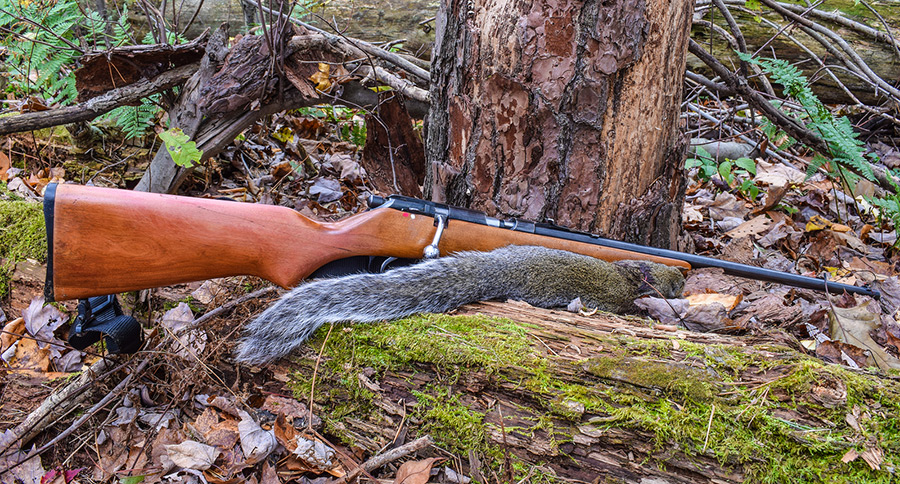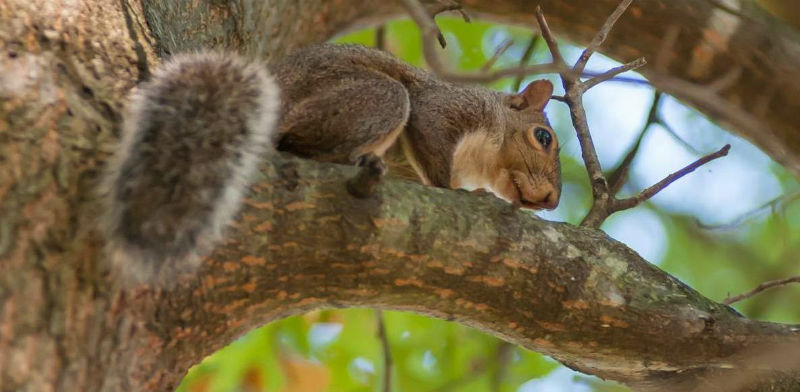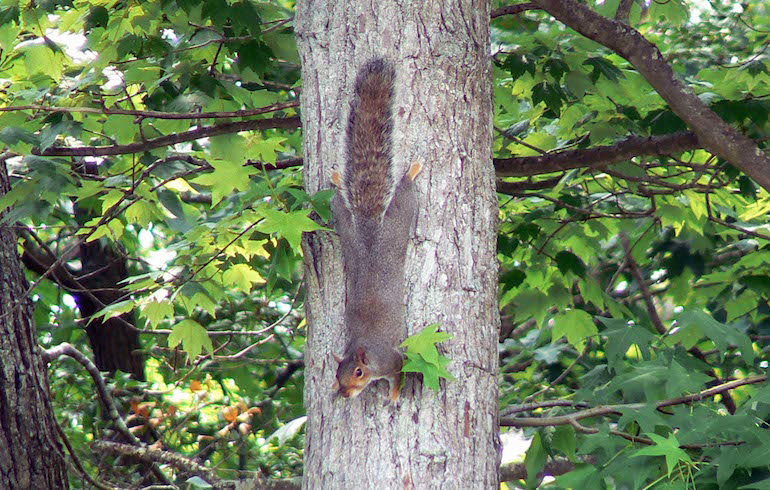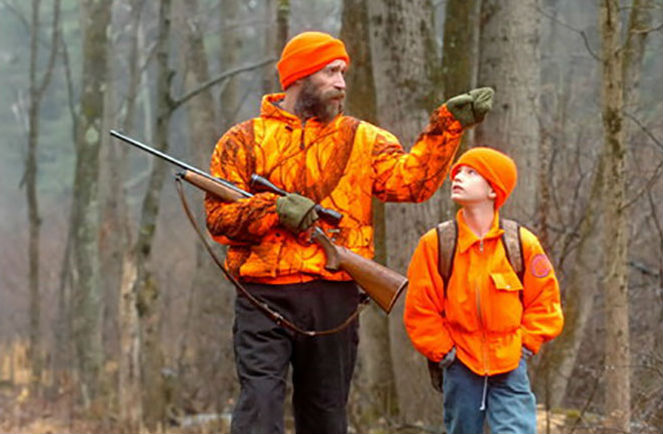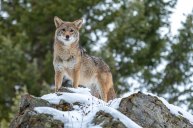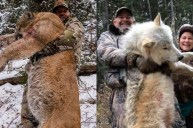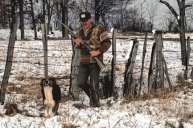The lessons my dad taught me during our first squirrel hunts together have stayed with me to this day.
I remember my first hunt with my dad with fondness and nostalgia. It's a memory that has stayed with me through these many years, and it's one that defines my hunting and outdoor ethic to this day.
I guess it would be more accurate to describe that first hunt as a series of hunts. Baby steps for me on the road to becoming a hunter. And baby steps for my dad, on his own road to becoming a father.
As is the case with many fathers and sons, our first outings targeted gray squirrels. Small game hunting is the great training ground for introducing young hunters to the lifestyle. I have no statistics to back this up, but my sense is that squirrel hunting may be the most favored introductory game species for teaching kids how to hunt.
Every year I longed for squirrel hunting season and couldn't wait to be heading into the woods with my dad. I'd read and reread the hunting regulations as best I could, or study pictures in whatever Outdoor Life or Fur, Fish and Game magazines we had lying around.
When my dad would tell me we were going hunting on an early season weekend, I'd excitedly gather and organize all of my hunting gear, double and triple checking everything the day before. Since I was just a seven- or eight-year-old kid I didn't actually have any "hunting" gear, but I did have a pocket knife, squirrel call, game vest, cap, gloves, and a pair of boots.
I'd neatly organize everything on a chair in the living room, so that when I awoke I could quietly and quickly get myself outfitted.
Truth be told, I don't know if I really slept all that much anyway. It was the one time I never minded not watching Saturday morning cartoons.
Our routine would be to get up well before early morning light and drive to the woods. When we'd finally park the car we'd have a little breakfast in the front seat of the car as we'd wait for dawn's first light. Saltines, summer sausage, and cheese never tasted so good, washed down with a thermos of coffee for Dad and a canteen of water for me.
Then, we'd quietly push the car doors shut and my dad would grab his .22 rifle before we'd silently walk into the forest. He'd make sure to whisper to me about how to carry a gun, to be constantly aware of where the muzzle was pointed and to keep my finger off the trigger. These early squirrel hunting outings were as much about firearm safety as they were about hunting.
Though I didn't have my own gun quite yet, it was important to see my dad carrying his, and when he put it in my hand, I felt that wave of responsibility come over me. Just like it should.
A boy's first gun
When I did finally get my first gun I was pretty well familiar with the rules of gun safety. I got my first rifle when I was, I think, 10. It started with a gift-wrapped box under our Christmas tree. I opened the box and inside was a note that led me to a spot somewhere in the house, where I found another note that lead me to another spot. This little Family Circus-like route of notes leading to more notes took me all over the house, until it ended with the final gift box stashed under my bed.
Inside was a brand new Springfield single-shot .22 rifle. It was the best Christmas gift a kid ever got. I remember thinking it was way better than a Red Ryder BB gun! I still have the rifle to this day, and occasionally still use it.
My ultimate culmination was delayed, since dad had me carry it without the bolt in it for the first time out in the woods. This was just so he could make sure I handled it safely in every situation in the field.
Successful squirrel hunters are successful hunters
The way I learned it, hunting squirrels employs all of the skills and woodsmanship necessary for successful whitetail deer hunting. Squirrel woods are also deer woods, and the pursuit requires stalking skills; the ability to move silently and slowly through the woods is paramount.
It trains the eye to look for movement and small differences in the landscape. The fuzzy outline of a squirrel's tail, for example, against the the harder edge of a tree trunk or limb.
I also learned that wildlife is extremely food-focused. Chewed up acorn and hickory nut hulls on stumps told the story of a squirrel's constant search for food. This transferred to learning what ruffed grouse and deer fed on, and where they might be found. These are, of course, common sense things that adult outdoorsmen and women understand, but to a small boy they were lightbulb moments.
All of these things I learned from my dad, and built upon with my experience in the field as I got older. I am convinced that being a good squirrel hunter laid the foundation for me being a good hunter of all other game.
Wild squirrels and city squirrels are two completely different animals in temperament. Where city squirrels are largely unconcerned with the presence of humans, wild squirrels are skittish beyond belief. They are, after all, prey animals that are constantly in danger of becoming a predator's meal. Sneaking up on a wild squirrel is not impossible, but it's darn close.
As soon as your presence is detected a squirrel will bolt to the safety of a tree, losing itself in the branches.
When this happens a good squirrel hunter must exercise patience.
If it's early season and the leaves are still on the trees, you try to figure out which tree or trees the squirrel is likely hiding in. Then you find a tree to lean your back against, and you sit down. You must be able to sit quietly, without fidgeting, for an extended period of time while scanning every branch of the tree in front of you, waiting for that gray squirrel to reappear or make his move.
Sometimes this could take upwards of 25-30 minutes. But eventually, if you were still and quiet, the bushytail would assume that you had left the area and would make its way back down the tree, presenting itself for a shot.
I can almost hear my dad's voice as I write those words.
In the later squirrel season, when the leaves had dropped, you didn't have quite as much waiting to do when a squirrel disappeared up a tree. Often, you could lean against a tree and scan every naked branch until you spotted him. Unless of course he was on the other side of the tree. This was often the case when my dad took me hunting, and I learned one of the key tenets of squirrel behavior: They will usually try to put the tree between you and them.
In these instances, my dad would have me slowly walk around the tree while he remained stationary. The squirrel would scamper around the tree as I made the round, inevitably presenting a shot to my dad.
Respect for wildlife
Whenever I went to pick up a downed squirrel, it always made me feel both good and a little sad. They were such cool little critters, that only moments earlier had been scurrying across the forest floor or barking to one another. But I was fascinated by their bushy tails and collected them until I had dozens and dozens.
I also loved the weight of carrying a few, or even a bag limit, in my game vest. It felt like success. My dad had used his skill and woodsmanship to best a forest creature whose life was completely dependent upon outsmarting wily predators. And now I was doing it, too.
He showed me how to clean the squirrels and prepare them for my mom to cook when we returned home. If on occasion we were lucky enough to bag a big fox squirrel, I would really take my time with skinning those to preserve the hide. It was the one opportunity I got to act like a real trapper.
My mom would roll the squirrel quarters in seasoned flour and we'd feast on fried squirrel and mashed potatoes. It was a different kind of delicious, knowing I'd contributed to the meal.
My time hunting squirrels with my dad is the best childhood memory I have. He laid the foundation for my love of the wilderness, my respect for the animals I harvest, and my interest in biology. I've tried to pass that love and conservation of all things wild onto my own children.
For these memories alone I owe my dad more than I can ever repay. But he was so much more. He was also my Boy Scout leader (my mom was my Cub Scout leader), and he was our official wrestling team photographer. He supported me and my brother in everything we did. There were plenty of important moments spent together, but that time in the woods sticks out.
The lessons he taught me in the squirrel woods made me the outdoorsmen I am today. Since it's the season of giving, and he gave me so much, I'm lucky to be able to use this opportunity to say "Thanks, Dad!"
Like what you see here? Experience more articles and photographs about the great outdoors at the Facebook page, Stumpjack Outdoors.
NEXT: RABBIT HUNTING: KICKING THE THICK BRUSH FOR BUNNIES
WATCH
https://rumble.com/embed/u7gve.v3toev/
